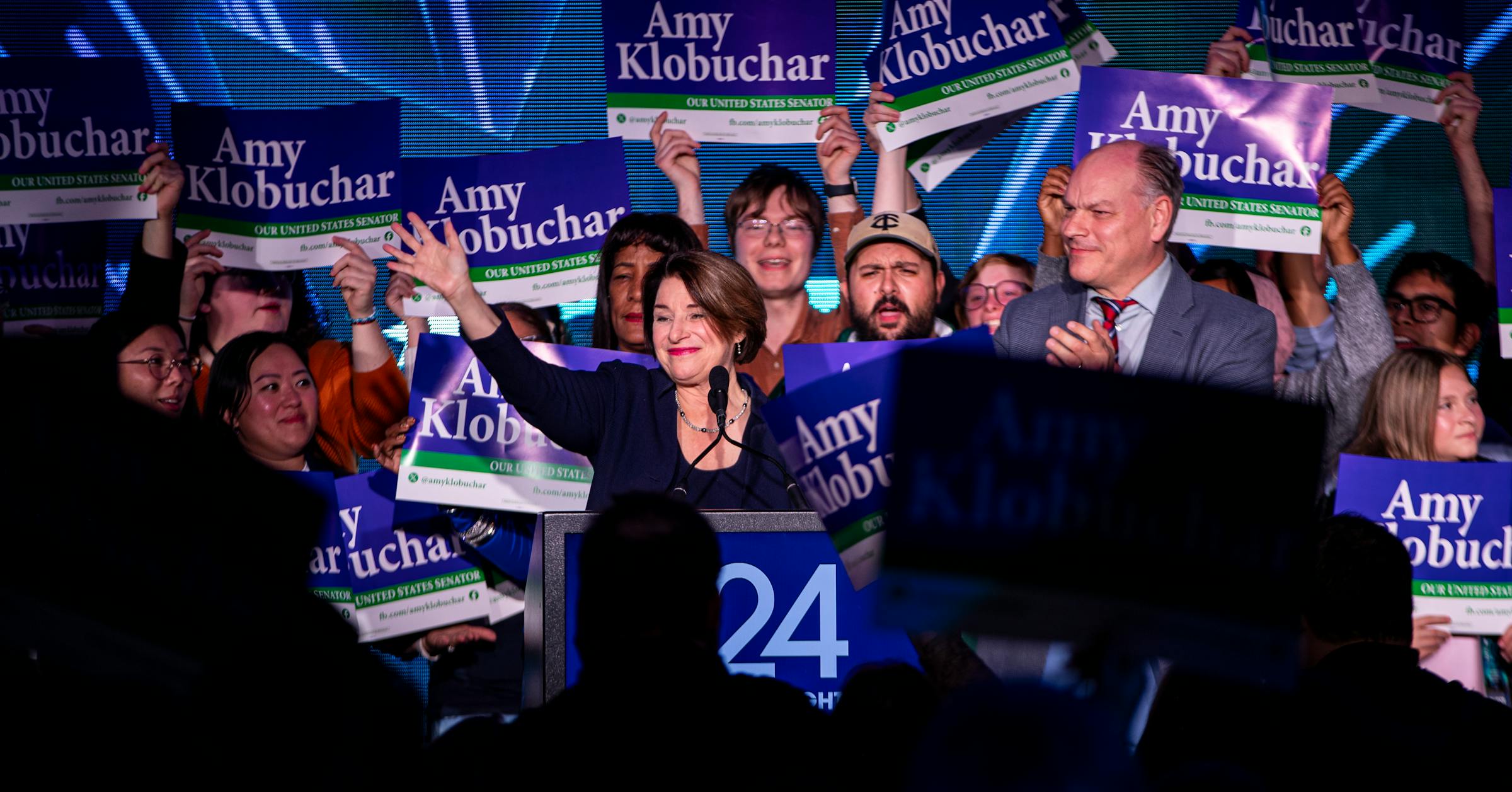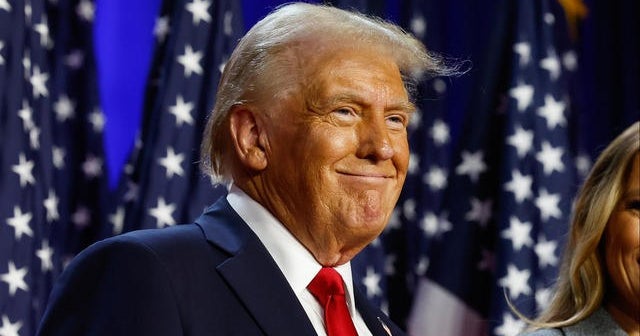Star Tribune
Minnesota voters favoring renewal of dedicated lottery funding for environment

Early returns from Minnesota’s only constitutional amendment question on the November ballot showed voters favoring renewal of dedicated lottery funding for the outdoors, a system that has delivered more than $1 billion to environmental projects since it began 36 years ago.
For the measure to pass, more than 50% of voters must say “yes” to the continued flow of Minnesota State Lottery cash into the Environmental and Natural Resources Trust Fund.
Since voters first adopted dedicated lottery funding for the outdoors in 1988, the pipeline of money has pumped tens of millions of dollars a year for clean water, wildlife habitat, environmental education, trails, land acquisition and other projects beneficial to natural resources.
If the final vote is a “yes,” the system will be in place at least until 2050. If the measure fails, lottery money will continue to flow to the trust fund unless the Legislature changes it.
The money is shepherded by the Legislative-Citizen Commission on Minnesota Resources (LCCMR). The yearly recommendations must be approved by the Legislature and signed by the governor for the money to be released. In the current fiscal year, the trust fund generated $76.6 million to underwrite 101 projects. Next year, the withdrawal from the fund will surpass $100 million for the first time.
Previous statewide votes in 1990 and 1998 overwhelmingly supported constitutional dedication of lottery funds for the preservation and restoration of wild places. To keep it going, a broad-based coalition of outdoors-minded groups has campaigned for yet another victory. The group, known as Minnesotans for Our Great Outdoors, has been reminding voters that leaving the question blank counts as a “no.”
The system for distributing the annual proceeds wouldn’t change if the amendment passes. That process, starting with projects selected by LCCMR, is governed by the Legislature. But this year’s proposed constitutional amendment would increase the maximum allowable annual draw from the trust fund from 5.5% to 7%. To address the additional 1.5%, the Legislature created a new community grant program for underserved organizations and communities. To be overseen by the Department of Natural Resources, it would dole out money in consultation with an advisory council for projects consistent with the constitutional purpose of the trust fund.
Star Tribune
Four early takeaways from the 2024 election in Minnesota

Minnesota has not gone for a Republican candidate since Richard Nixon in 1972.
Six congressional incumbents in Minnesota easily won back their House seats.
As of 11:30 p.m. Tuesday, Republican Reps. Tom Emmer, Brad Finstad, Michelle Fischbach and Pete Stauber won re-election, along Democrats Reps. Angie Craig and Ilhan Omar.
The race in Minnesota’s Fourth District, between DFL Rep. Betty McCollum and Republican May Lor Xiong, had not been called as of 11:30 p.m.
For the second time in her career running for U.S. Senate, Amy Klobuchar is outperforming the Democratic presidential candidate.
As of 11:30 p.m., Klobuchar earned nearly 83,000 more votes than Harris, despite Minnesota Gov. Tim Walz running as her vice president nominee.
Star Tribune
Minnesota judicial election results 2024: Incumbents lead races

Minnesota Supreme Court Justice Natalie Hudson and Justice Karl Procaccini both held commanding leads early Wednesday in the only two contested races on the state’s high court.
Throughout the whole statewide judiciary, only nine sitting judges were up for election against challengers, and some of those races were too close to call as 1 a.m. approached. Six of the contests involved district court judges in the Twin Cities, central Minnesota and up north.
On the state’s Court of Appeals, incumbent Judge Diane Bratvold was leading comfortably over challenger Jonathan Woolsey of Chaska. She began serving on the Appeals Court in 2016 and was elected to a six-year term in 2018.
Hudson, appointed as the court’s first Black chief justice last fall, was challenged by Stephen Emery, who has run for multiple offices. With 87% of precincts reporting, she garnered 63.5% of the vote. Hudson served as an associate justice on the Supreme Court since 2015 and previously served 13 years on the state’s Court of Appeals.
Procaccini, appointed in August 2023 by Gov. Tim Walz, was running against lawyer Matthew R. Hanson, who two years ago ran unsuccessfully against Scott County Judge Charles Webber. Procaccini served as general counsel to Walz for four years beginning in 2019, helping the governor navigate the pandemic.
Hanson stressed in his campaign that he would be independent from the governor’s office. With 83% of precincts reporting, he drew 43% of votes to 57% for Procaccini.
Supreme Court Justice Anne McKeig, first appointed in 2016 and elected in 2018, was on the ballot without opposition.
In the Tenth Judicial District, Judge Helen Brosnahan held a lead in her first election after being appointed to the bench by Walz in 2022. Her challenger, Nathan Hansen, is a solo practitioner who received Republican party assistance as the party’s recommended candidate. The Tenth Judicial District covers Anoka, Washington, Chisago, Isanti, Kanabec, Pine, Sherburne and Wright counties.
Star Tribune
MN voters decide whether to elect Tim Walz as vice president
Democratic Vice President Kamala Harris and Gov. Tim Walz were poised to win Minnesota’s electoral votes on Tuesday, but there was little to celebrate as a path to nationwide victory looked narrow.
Neither Harris-Walz nor former President Donald Trump and running mate, Sen. JD Vance of Ohio, spent much time campaigning in the state. Republicans had pledged to turn Minnesota red for the first time since 1972, but polls consistently showed Harris-Walz with a slim but steady lead.
Late into the evening Tuesday, the returns looked far less promising for the Democrats.
If elected, Harris would be the first female president and Walz would be the third Minnesotan elected to the vice presidency.
Harris and Walz ran a compressed campaign as she tapped him for the ticket in early August shortly after President Joe Biden stepped aside and just before the start of the Democratic National Convention in Chicago.
Walz sought to join Minnesota’s favorite sons, the late vice presidents Walter Mondale and Hubert Humphrey, who served, respectively, with former Presidents Jimmy Carter and Lyndon Johnson.
Voting in north Minneapolis Tuesday, Joseph Thomas, 39, said he chose Harris and cited equality, help with housing and taxes as issues he cared about most. He also liked that Harris could be the first female president: “That was a big deal, too,” he said.
At Martin Luther King Recreation Center in St. Paul, Kate Kulzer walked her dog, a Catahoula leopard dog named Rhubarb, and dropped her fiancé off to vote about an hour before polls closed. Kulzer had voted for Harris earlier in the day – but she considered it a vote against Trump.



